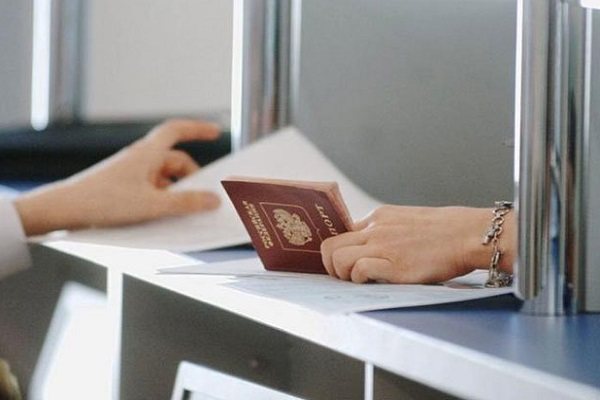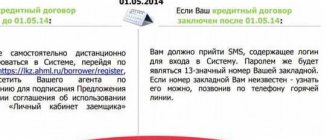How to register in a mortgaged apartment
Each individual credit institution develops and adopts its own regulations regarding registration issues. But most often, one of the conditions of the mortgage agreement is to obtain consent from the bank to register relatives and third parties in the collateral property. As a rule, permission to register children, husband/wife or parents (that is, immediate relatives) is very easy to obtain. The only thing is that many lenders additionally include a clause in the contract obliging the borrower, in the event of failure to fulfill his loan obligations and the apartment being foreclosed, to discharge his minor children from it.
Nuances of registration in IC
Despite the broad rights of the borrower, banks seek to insure themselves against risks, and therefore impose various restrictions on registration in collateralized real estate. In this way, the lender takes care of his funds lent to the client.
Are there any restrictions?
Banks on their own develop and implement provisions affecting the subject of registration in the investment account.
What are the conditions for obtaining registration:
- Guarantee agreement. Banks do not resist the borrower’s desire to register immediate family members. But they can impose a condition on the parent’s registration in the mortgaged apartment and require him to enter into a guarantee agreement with him. Basically, this practice is observed in cases where the question of a parent’s registration arose after signing the mortgage agreement.
- Obligation to discharge children. The agreement may contain a clause that obliges the borrower, in case of failure to fulfill obligations under loan obligations and the seizure of the investment account, to voluntarily discharge children under 18 years of age from it.
- Obtain bank permission. Lenders often specify restrictions in the contract for non-close relatives. The bank may “think” for a long time whether to give permission for registration or not, and may even refuse it, although this is a controversial point from a legal standpoint.
- Early repayment. If the borrower ignores the terms of the agreement (including the rules for registration in the investment account), the bank has the right to initiate early termination of the credit relationship. The borrower may be required to urgently repay the mortgage.
Conflict is the most undesirable scenario in a case involving a bank loan, mortgage or collateral. Every effort should be made to resolve the conflict without bringing the matter to trial.
Do I need to notify the bank?
The agreement between the bank and the borrower establishes the rules that the borrower must follow in his actions.
Options:
- No notification is sent to the bank. The borrower registers a person without warning the bank. But there is a problem - if the mortgage agreement stipulates mandatory notification to the bank, regardless of anything, then when the bank becomes aware of such an action, it will have a reason to hold the borrower accountable for violating the agreement.
- The bank is notified. The borrower contacts a bank branch, fills out a special form on the bank’s official website (if such a function is supported) or sends a notification letter by regular mail. There is no need to wait for permission; it is enough to receive a message that the letter has reached the addressee and has been added to the file. This does not apply to permission, it is only about notification.
- Waiting for permission. Many banks require borrowers to request permission to register. Otherwise, there is a risk of termination of the contract.
Interesting article: What types of registration exist in Russia?
How to avoid disputes?
The main secret to avoiding disputes with banks is to carefully study documents before signing them.
What is your registration?
Registration at the place of residenceRegistration at the place of stay
How to prevent misunderstandings and conflicts:
- Read the contract. If you, as a future borrower, find a clause that does not suit you, you should not sign the agreement. Look for a lender who is more responsive to the issue of registration.
- Ask questions. In these times of technology, it is possible to get advice without leaving your home. It is recommended that you ask questions before signing a mortgage agreement. The borrower is not required to know any concepts and terms of the banking industry. It is the bank employee's job to explain what and how.
- Follow the terms and conditions. If you sign a contract without reading it or understanding what is written in it, you must abide by its terms. Otherwise, the second party to the agreement has the right to start legal proceedings against you.
Any conflict can be resolved amicably. Remember that scolding and threats do not solve the situation, but only aggravate it.
When can I register?
The start of the registration procedure depends on the points included in the contract, and taking into account the relationship of the registered persons.
When does registration take place:
- The borrower (who is also the owner of the investment company). He can register immediately after receiving documents confirming his ownership from the bank.
- Other persons. If the contract does not stipulate additional conditions, the owner can register anyone in the IC immediately after receiving his own registration. If such conditions exist, the owner will be able to register other persons only with the consent of the bank.
Is it possible to register in an apartment with an encumbrance?
- Its private form is an agreement between two individuals. Example: a passage room in a communal apartment, since without the right to pass through it it is impossible to use your room.
- Public form – an agreement between an individual and the state. Example: restrictions imposed by the state on a residential property on the site of which a new road will be built. The apartment owner is paid compensation or offered new housing for relocation.
We recommend reading: Tablets for Living in the Chernobyl Zone
Apartment with encumbrance
Another type of encumbrance is trust management. This happens if the apartment owner decides to go abroad for a long time and wants someone to look after the living space. An agreement with a certain period is drawn up, and the owner partially transfers the rights to the apartment to another person. Early removal of the encumbrance is possible only by mutual consent of the participants or the death of the executor. In this case, there is a risk that the owner will sign documents for the sale of the property without removing the encumbrance. It will take a long time to resolve the situation through the courts. Naturally, this will entail considerable expenses. Therefore, if you want to sell or buy an apartment with an encumbrance , it is better to first consult with a specialist.
List of required documents
- passports of the owner and his close relatives,
- a fresh extract from the Unified State Register for the apartment (the easiest way to get it is here),
- a mortgage agreement, which must contain a clause on the possibility of registering members of the owner’s family. There will be no obstacles to the registration of the owner himself. If such a procedure is not specified in the agreement, then you must contact the bank, write an application and obtain the lender’s consent to register relatives;
- document providing the basis for moving in (lease agreement, rental agreement, etc.). For relatives, such a document replaces a separate application for housing.
- departure slip from the last place of registration or tear-off coupon,
- marriage certificate (if a spouse is registered),
- birth certificate (for children).
How to register for a mortgaged apartment? We perform the following sequential actions:
- We contact the management company, housing office, homeowners association (those servicing the house), or the MFC department. It is within the competence of the procedure for registering the population at the place of residence (initial acceptance of documents). Or submit documents through the State Services portal.
- Fill out application form No. 6 for registration. This will be the basis for moving in. Signed by the owner and the registrant.
- Attach a housing document (certificate or extract from the Unified State Register) to this application.
- If a Russian citizen wishes to register in a new place of residence without deregistering from the previous register, then a tear-off coupon (application for deregistration) is filled out. If a person has already been discharged from his old place of residence, the previously received (upon discharge) address sheet of departure (Form No. 7) is presented to register permanent registration. Although in many regions this document is irrelevant.
- The original passport is also provided.
- Next, passport officers forward the documents to the migration department of the Ministry of Internal Affairs. There, documents for registration are checked within 3 working days. And if they find no reason for refusal, then they put a stamp in the passport confirming registration at the address.
- The documents are returned to the management company, housing department, homeowners' association, MFC, that is, to where they were handed over by the applicant. And there he is given a stamped passport and “capital” documents.
If documents were submitted through State Services. Then the migration department notifies you via electronic communication of the need to come to the department and hand over the original documents. The applicant must arrive within the next 3 days. On the day of his appearance, his passport will be stamped. Registration is completed.
Registration for an apartment with a mortgage: who is allowed and what restrictions exist
If the pledgee's consent is required for the mortgagor to transfer the pledged property for temporary possession or use to other persons, if the mortgagor violates this condition, the rules established by subparagraph 3 of paragraph 2 of Article 351 of this Code are applied.
- If the pledgee forecloses on the pledged property, rights in rem, rights arising from a lease agreement, other rights arising from transactions for the provision of property for possession or use, which are provided by the pledgor to third parties without the consent of the pledgee, are terminated from the moment the decision enters into legal force court on foreclosure of the pledged property or, if the pledgee's claim is satisfied without going to court (out of court), from the moment the acquirer acquires the right of ownership of the pledged property, provided that the acquirer does not agree with the preservation of these rights.
- The pledgee has the right to use the collateral transferred to him only in cases provided for by the agreement, regularly submitting a report on use to the pledgor. Under the agreement, the pledgee may be obligated to extract fruits and income from the pledged property in order to repay the main obligation or in the interests of the pledgor.
Housing Consultant
- Documents are being collected.
- An application for registration is filled out and submitted to the Federal Migration Service of the Russian Federation or the passport office.
- To register, you must provide a mortgage agreement, which contains a clause stating that the bank allows you to register family members and other citizens.
- If there is no such clause, then it will be necessary to present the bank’s written consent to carry out registration.
- The verification procedure for the provided documentation is carried out within three days.
- If the requirements are eligible, a registration stamp is recorded in the applicant’s passport.
Registration mechanism
Registering a borrower is almost the same as the registration algorithm for non-mortgage housing. Differences arise when registering other persons. Let's look at the procedure for registering the latter step by step, and also indicate the documents required for registration.
Interesting article: Obtaining a compulsory medical insurance policy at your place of registration
Documentation
The owner of the mortgage, who wants to register this or that person in the mortgaged apartment, collects a package of documents and applies to the passport office.
Documents for registration in IC:
- an application made on a special form (form No. 6);
- passport of the apartment owner;
- an extract from the Unified State Register of Real Estate as a document confirming ownership;
- passport of the person registered in the residential area (if this is a child under 14 years old, then a birth certificate).

A sample application for registration at the place of residence (form No. 6) can be downloaded here.
Additionally:
- Copy from the contract. It is removed from the page on which the regulations on residence and registration in the IK are written down.
- Permission from the bank , if required by the agreement. Provided in paper form.
Citizens of the Russian Federation have the opportunity to use the State Services portal and submit an application for registration at their place of residence online. You can read more about this on their website – https://www.gosuslugi.ru/10050/1
Step-by-step instruction
Regardless of which bank the mortgage agreement was concluded with, registration of third parties in the apartment is carried out in the same manner.
Procedure for registration in IC:
- When applying for permanent registration, you must obtain an extract from your previous place of residence.
- The borrower submits an application to the bank, written in a free format, which sets out a request to register a person in the collateral property. The application indicates the passport details of this person and his relationship with the owner. A number of banks provide an online application requesting registration of a third party.
- The bank, having examined the application, issues a verdict. As a rule, the review process takes no more than one week.
- If the borrower has received the bank’s consent, he can submit documents for registration at the passport office.
- Depending on the type of registration, the applicant receives a corresponding insert or a stamp is placed in the passport.
Currently, a special unit of the Main Directorate for Migration Affairs of the Ministry of Internal Affairs and the MFC is engaged in the registration of citizens and control of migration processes in Russia.
An application for registration is submitted within the time specified by law; delays in deadlines lead to administrative liability - for permanent registration you must contact the appropriate authorities within one week.









